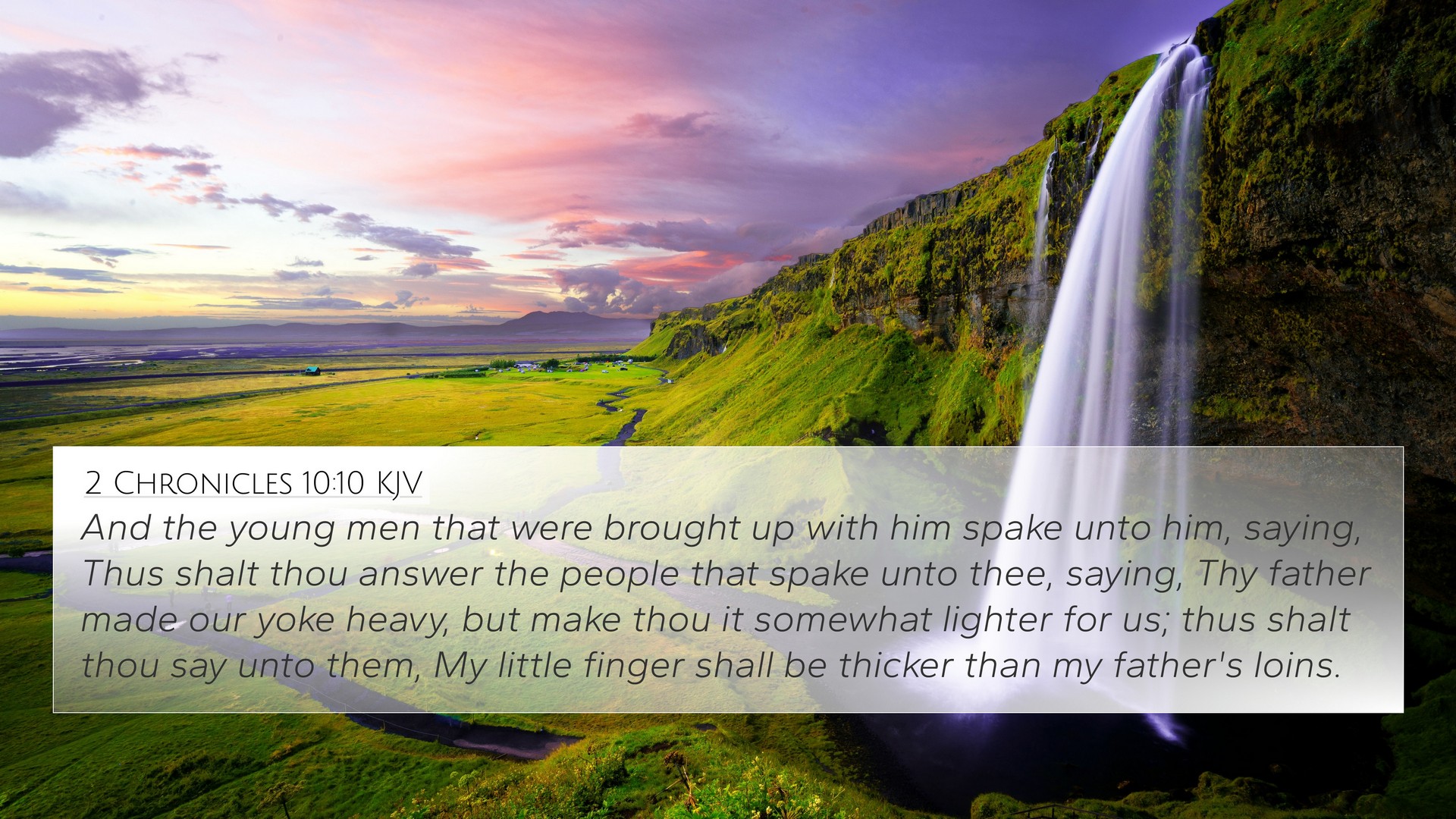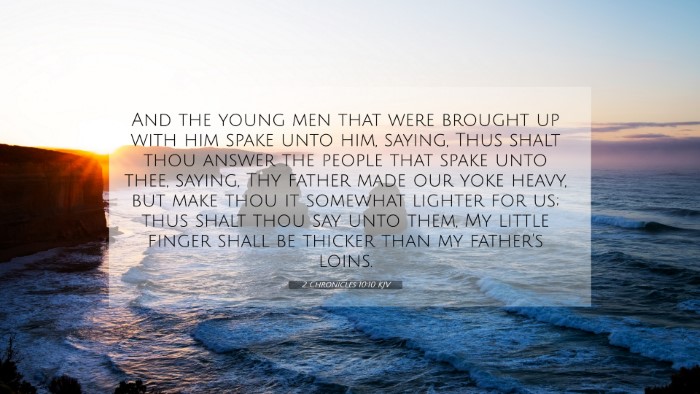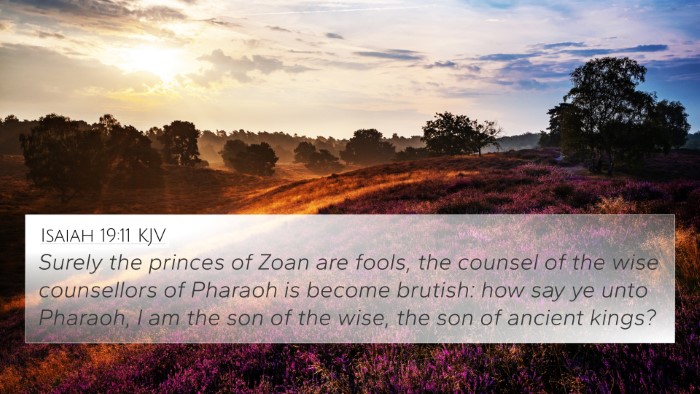Understanding 2 Chronicles 10:10
2 Chronicles 10:10 reads: "And the young men that were brought up with him spake unto him, saying, Thus shalt thou speak unto the people that spake unto thee, saying, Thy father made our yoke heavy, but make thou it lighter for us." This verse captures a pivotal moment in the transition of leadership from Solomon to Rehoboam.
Summary of Key Themes
- Leadership Transition: This verse emphasizes the reaction of the people to their new ruler, Rehoboam, and sets the stage for the division of the kingdom.
- The Role of Counsel: The verse highlights the importance of seeking wise counsel and the potential dangers of poor advice.
- Heavy Burdens: The acknowledgment of the people's burdens under Solomon underscores themes of oppression and the desire for relief.
Commentary Insights
Matthew Henry remarks that the young men, who provide counsel to Rehoboam, reflect the spirit of youth and a lack of wisdom that can lead to disastrous consequences. He emphasizes that Rehoboam should have sought the advice of the elder, fostering an understanding of the importance of listening to those with experience and knowledge.
Albert Barnes notes that the demands of the people represented a legitimate call for less burdensome governance. His commentary suggests that Rehoboam’s rejection of their plea ultimately led to the nation's fracture, indicating the necessity of a ruler to listen to the grievances of his people.
Adam Clarke emphasizes the cultural context of the time, where the people’s request for lighter burdens was a common appeal to rulers. He notes the significance of the young men’s advice, stressing that the simplicity of their counsel failed to recognize the complex needs of the kingdom.
Bible Verse Cross-References
This verse can be connected with several important scriptures that highlight themes of leadership, burdens, and wise counsel:
- 1 Kings 12:4 - A parallel account of the people's plea to Rehoboam.
- Proverbs 11:14 - The importance of wise counsel in leadership.
- Jeremiah 22:13 - A critique of unjust rulers and heavy burdens imposed on the people.
- Matthew 20:25-28 - Jesus' teaching on servant leadership contrasts with worldly appeals to power.
- 1 Peter 5:3 - An encouragement for leaders to be examples rather than oppressors.
- Isaiah 9:4 - A prophetic vision of a future leader who breaks the burdens of oppression.
- 2 Timothy 4:3 - Discusses the inclination of people to seek teachers that suit their desires.
Connections Between Bible Verses
In examining 2 Chronicles 10:10 and its related verses, we can uncover deeper insights into the dynamics of leadership, the necessity of understanding the people's needs, and the consequences of disregarding wise counsel. Here are some thematic connections:
- The nature of authority as it relates to serving rather than ruling (Matthew 20:25-28).
- The dangers of youth and impulsiveness when generalized advice is followed (Job 32:9).
- The role of elder counsel in providing wisdom (Proverbs 15:22).
- God's sovereignty in guiding rulers, illustrated through the narratives of both Rehoboam and other kings (Proverbs 21:1).
- The significance of accountability for leaders regarding the burdens they impose (Jeremiah 22:13).
Tools for Bible Cross-Referencing
To further explore the connections within the scriptures, the following tools and methods are useful for performing a cross-reference Bible study:
- Bible Concordance: Utilize a concordance to find keywords and their occurrences across scripture.
- Bible Cross-Reference Guide: These guides provide detailed notes on related verses.
- Cross-Reference Bible Study: Engaging in structured study sessions focusing on linked passages.
- Bible Reference Resources: Access online or print resources that compile various scripture connections.
- Bible Chain References: Follow thematic links between verses in a chain format for deeper understanding.
Conclusion
This analysis of 2 Chronicles 10:10 reveals critical lessons in leadership, the impact of advice on governance, and the importance of attending to the needs of the people. By engaging in scriptural cross-referencing and thematic analysis, we gain a richer understanding of the Biblical narrative and how interconnected the teachings are within the scripture.












